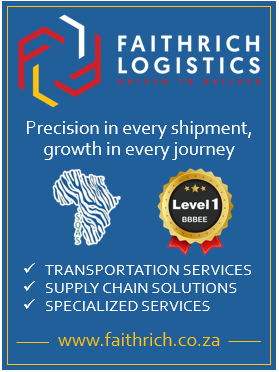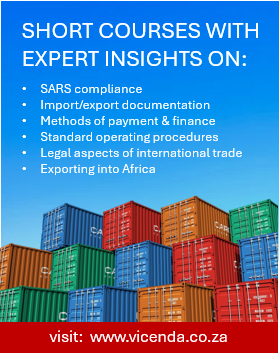The Chartered Institute of Logistics and Transport South Africa (CILTSA) successfully concluded its annual ESG Conference, “Measuring Impact, Managing Change,” which represented a pivotal moment for the transport and logistics sector's sustainable transformation. Programme directed by Aaron Munetsi, the CEO of the Airlines Association of Southern Africa (AASA), the event brought together leaders from the industry, as well as sustainability experts and other key stakeholders. Together, they discussed how the sector should approach environmental, social and governance (ESG) challenges.
Industry Experts Address Operational Excellence
The 'ESG Intelligence: Operational Excellence and Resilience' session addressed critical compliance challenges, including the use of fragmented data systems and the impact of regulatory uncertainty.
Brian Mudhokwani, Chief Operating Officer at ISB Optimus, highlighted the risks of contract loss for companies that are not in compliance. Munyaradzi Husvu, CEO at ISB Optimus, prioritised transforming ESG from a reporting burden to operational excellence.
Alfred Nhira, Senior Solutions Consultant EMEA at Infor, presented Infor's four-pillar technology approach, which covers strategy planning, product tracking, emissions management and embedded ESG processes.
Carbon Border Adjustment Mechanism Urgency
The CBAM session examined the EU's Carbon Border Adjustment Mechanism (CBAM), which involves the implementation of carbon taxes on imports. Bongi Kunene, Managing Director at BASA, explained how CBAM transforms climate policy into trade barriers affecting South African exports. Heidi Barends, Head of Sustainable Finance at Absa Corporate and Investment Banking, drew attention to the transition to unilateral ESG regulations.
The discussion revealed that CBAM could cost South Africa 300,000 jobs over 10 years, with solutions including BRICS partnerships and renewable energy manufacturing.
Social Impact in Supply Chains
The social ESG session explored stakeholder capitalism through double materiality assessment.
Lauren Rota, Senior Director of Sustainability for sub-Saharan Africa at DP World, underlined the importance of stakeholder engagement in identifying key social issues. Dr. Khuliso Rasimphi, Senior Specialist: ESG at Transnet shared examples of best practice in the areas of employee engagement and community relations.
Sachin Chanderdhev, Manager: Segment Propositions, Relationship Banking at Absa Group, described ESG as “a beneficial business practice that prioritises intention over compliance”.
Banking Sector Leads Climate Transition
Madeleine Ronquest, Head of Environment, Nature Risk, Climate Change at First Rand emphasised the pivotal position of transport in the global climate action strategy, noting its contribution of 25% to global emissions and significant potential for transition opportunities.
She underscored banking's evolution from passive lending to actively engaging clients in low-emission transitions, stressing opportunities in electric vehicle adoption, renewable energy integration, and circular economy principles.
Zero-Emission Trucking Transition
Mpho Nkhumeleni, Executive: Commercial Vehicle Sales at Isuzu stressed the pivotal economic function of trucking and its significant environmental impact, with road transport accounting for 70% of logistics emissions. He explained transition complexity, noting that battery electric vehicles are better suited to short-distance operations, while fuel cells are required for heavy-duty applications. He stated that Isuzu offers Euro 5 standards, as well as dual-fuel CNG technology that has achieved 18% fuel reduction in customer trials.
“The discussions at the Conference demonstrate the degree to which the transport, logistics and supply chain industries have transformed ESG from a matter of compliance to a source of competitive advantage,” said Elvin Harris, President of CILTSA. “Our esteemed speakers demonstrated that sustainable transformation requires the integration of ESG values into daily operations, not just measurement. As logistics, transport and supply chain leaders, we have a responsibility to drive South Africa's sustainable future. When our industry leads responsibly, the nation advances,’ he concluded.





